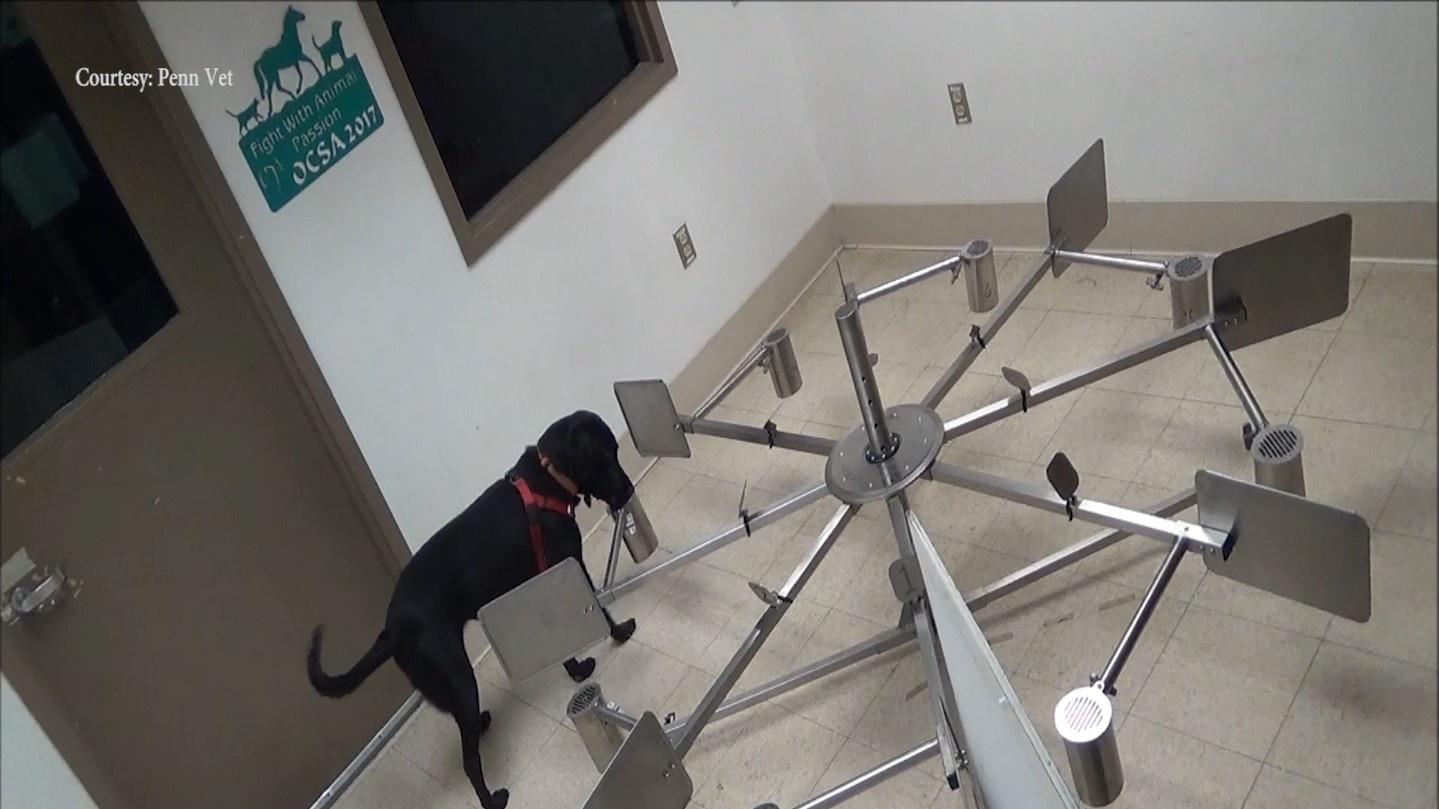BETHLEHEM, Pa. (WLVT) - Man’s best friend is sniffing out one of Pennsylvania’s biggest agricultural threats.
"For us it was literally, can the dogs be trained to find these eggs, can they be trained to find these eggs while ignoring all these other controls," explains Jennifer Essler, PhD, from the University of Pennsylvania's School of Veterinary Medicine, "as you know, these eggs are normally on trees and cars and we had to make sure that the dogs can really hone in on that."
A new program out of The University of Pennsylvania’s School of Veterinary Medicine is training dogs to smell out the Spotted Lanternfly. While the human nose cannot detect the invasive pest, a dog’s snout doesn’t skip a beat.
"Dogs see the world with their nose just like we see the world with our eyes," Essler tells PBS39, "But the really critical thing about dogs is that they communicate with us. So there are tons of animals in the animal kingdom that have as good, or better, olfactory capabilities as dogs but we need to not only train them to find eggs but to tell us that they’ve found the eggs! So that’s really the critical point and the relationship that dogs have with humans and their willingness to work with us and cooperate with us really makes them special for these types of tasks."
Beyond causing severe damage to trees and heavily affecting quality of life for humans, experts warn the Spotted Lanternfly poses a serious threat to the state’s agriculture industry. But UPenn researchers have found that dogs are perfectly capable of sniffing out the insects’ eggs with extreme accuracy. That is, of course, after rigorous training.
"For the dogs we used in the study, we were very lucky. They were already trained to find odors so they knew the game; find this odor and get a reward whether it’s a toy or food," Essler says, "So for this task, it started with putting the SLF egg in like a tin on the floor and when they showed any interest or sniffed it, we have a clicker that we use to mark that behavior and they get a reward. Just pairing that odor with that game and increasing it in difficulty like adding in other odors that might, in our mind, trip them up or things they need to learn to ignore, ramping up the game closer and closer to what they would need to do in the real world."
VO4: Penn Vet’s pilot training program comes at the perfect time. Right now is prime egg laying season for the Spotted Lanternfly and experts say early egg-mass detection through canine surveillance might just be the edge needed to fight the spread of the insect in Pennsylvania.
"They basically have a one year lifespan so all these crazy bugs you see, they’ll all die by winter. But what they do leave is their eggs. Their eggs do this process that we call overwintering; so, they’ll sit on the trees from now until early spring and then that’s when the life cycle starts again and you’ll start to see those tiny bugs," Essler tells PBS39 News Tonight, "and so this is a really critical time because other than humans or other animals moving these eggs, they are stationary and so it's a good time for researchers and those working with this pest to go in and either access the eggs in an area or make sure they don’t leave a quarantine zone."
The program is back up and running after coronavirus put it on pause for a few months, so lanternflies watch out.




